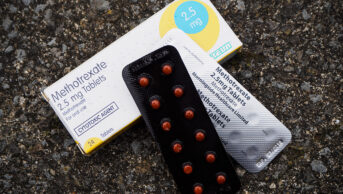
Shutterstock.com
The Medicines and Healthcare products Regulatory Agency (MHRA) has recommended new safety measures for pseudoephedrine-containing medicines, following reports of posterior reversible encephalopathy syndrome (PRES) and reversible cerebral vasoconstriction syndrome (RCVS).
In a statement published on 20 February 2024, the UK regulator announced that pseudoephedrine should not be used in patients with high blood pressure that is severe or uncontrolled, or patients with severe acute or chronic kidney disease or failure.
The MHRA also said that safety information of all pseudoephedrine-containing medicines will be updated to provide clearer descriptions of these risks and potential risk factors for these conditions for both patients and healthcare professionals.
The decision follows independent advice from the Pharmacovigilance Expert Advisory Group of the Commission on Human Medicines and concludes a safety review that was launched in February 2023, following a decision by the European Medicines Agency (EMA) to conduct a similar review.
The EMA’s risk assessment committee recommended similar safety measures in December 2023
Pseudoephedrine is a stimulant that is often used in over-the-counter decongestants in people who have a cold or allergies. It works by reducing swelling in nasal blood vessels, helping mucus and air flow more freely.
The MHRA guidance says that healthcare professionals should advise patients to stop using these medicines immediately and seek treatment if they develop symptoms of PRES or RCVS, such as severe headache with a sudden onset, feeling sick, vomiting, confusion, seizures and visual disturbances.
PRES and RCVS are rare conditions that can involve reduced blood supply to the brain, potentially causing life-threatening complications.
Commenting on the announcement, Alison Cave, chief safety officer at the MHRA, said: “Following a thorough review of new safety data, product information for all pseudoephedrine-containing medicines will be updated to better describe these very rare risks and the potential risk factors associated with these conditions.
“We remind healthcare professionals and patients that pseudoephedrine is for short-term use only and should only be used to relieve symptoms of nasal and sinus congestion in colds, flu and allergies,” she added.
The announcement said that the MHRA has received four Yellow Card adverse event reports of suspected PRES or RCVS associated with pseudoephedrine use to date, across a widespread usage, with more than 4 million packets sold in the UK in 2022 alone.
You may also be interested in

Patient safety commissioner to approach PM over ‘disappointing’ delay to valproate compensation

GPhC writes to pharmacy teams after methotrexate dispensed with instruction to take once daily
